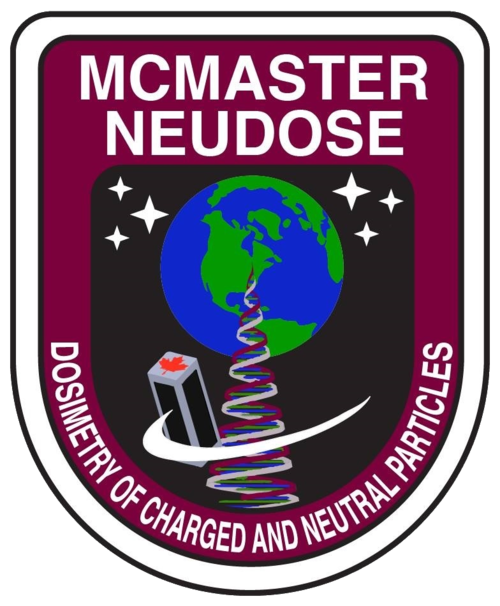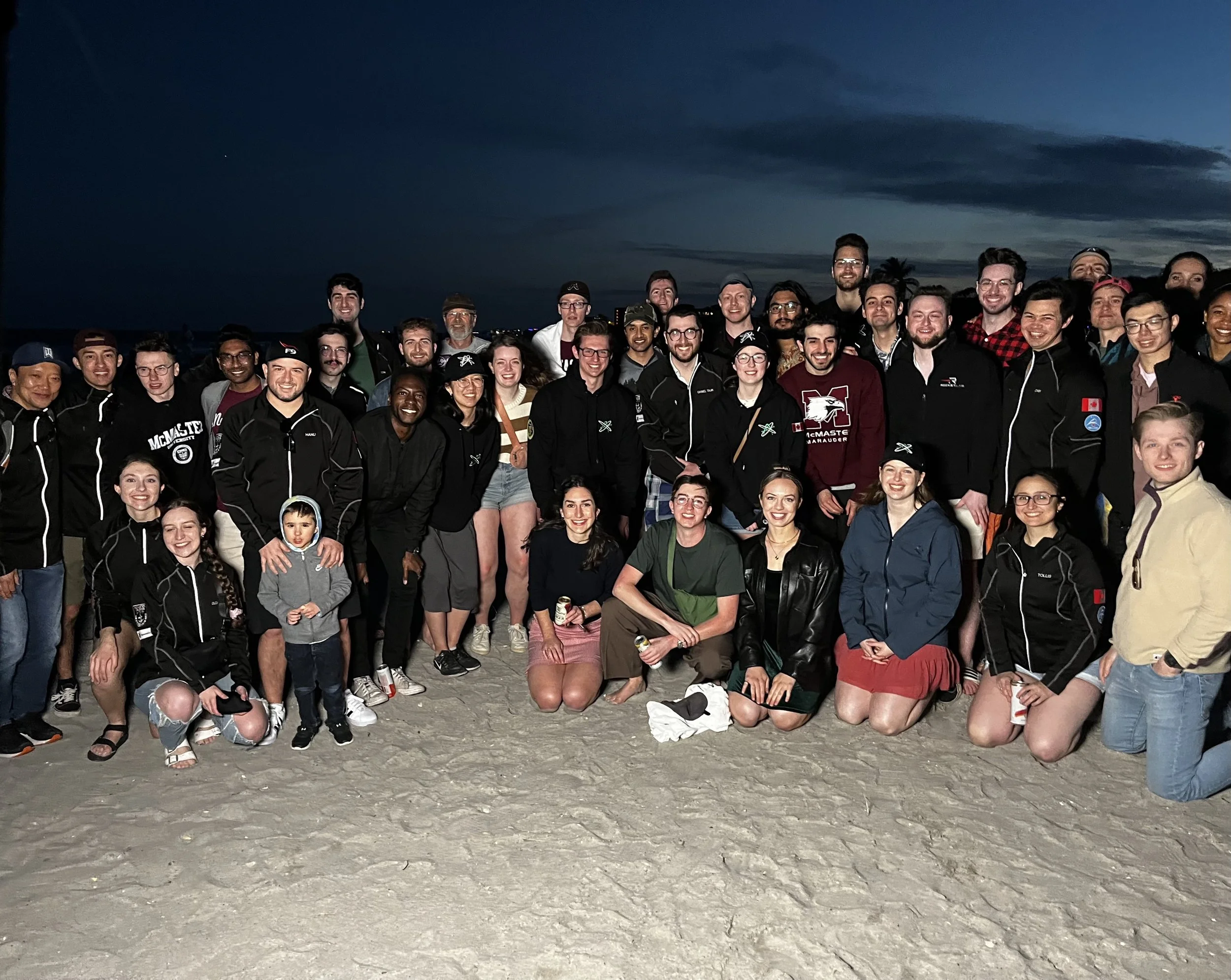Recruitment Process
Pre-Application - A list of positions the team is recruiting for is provided in the following section. Please review the list to see which sub-teams and positions are of interest to you.
Application Submission - Please fill out this form. This form allows the team to learn more about your skills and experiences. In order to gain a better understanding of your experiences, we request a cover letter and Resume/CV. Although not required for all positions, applicants are encouraged to submit a portfolio with past work/relevant projects.
Application Review - Following submission, MIST will review applications. Applicants of interest will be invited to attend an interview to assess compatibility for the team. Applicants are required to submit an unofficial transcript. For those with grade points below 4.0 on the McMaster grade scale, please submit additional supporting documents such as project files, portfolios, etc.
Applicant Acceptance - Successful applicants will be notified via email and given a time period to accept the offer and begin the onboarding process.
Recruiting will be open from September 4th to 19th at 11:59 P.M.
Current Openings
Updated 2025-07-16
(Click on the team name to view detailed descriptions)
Radio Communications Team
- RF Hardware Specialist (1 position, posted 2025-09-04)
CDH (Flight Software Team)
- Embedded Software Developer (3 positions, posted 2025-09-04)
Frequently Asked Questions
Q: When is the deadline?
A: MIST recruits on a bi-monthly basis (ie. every other month), where the form will be open for two weeks. If the positions are listed above, it means that we are still actively recruiting for the role!
Q: What is the time commitment for the team?
A: You will be required to join weekly meetings with your designated sub-team (1-2 hours), where the sub-team leader(s) will assign tasks to you and check in on your progress. You will also be encouraged to join weekly general and/or systems engineering meetings (1-2 hours), which consist of team-wide discussions and decision-making. As you get to know more about the team projects, your tasks will become more complex, which will require additional time commitments outside weekly meetings.
Q: Do I need to available on campus?
A: No. Weekly meetings are either fully virtual or hybrid, allowing members to join from anywhere. Sometimes our members will need to access our labs and facilities for in-person development and testing, but this can be arranged for those who are available.
Q: Do you recruit lower/upper year students?
A: We recruit a mix of upper and lower year students. While upper year students bring more experience, lower year students are able to stay on longer and grow with the team. All passionate students are welcome to apply! However, we do require that you have finished your first year of studies to ensure that you can keep up with your academics.
Q: What can I do to increase my chances of being selected?
A: We are always looking for passion, commitment, problem solving and critical thinking skills, so make sure you demonstrate that in your application! For example, this means that we look for personal projects and experiences in addition to coursework. Also, research into the team's goals and projects goes a very long way, especially if you can come up with good questions to ask of the team.
Q: What is the interview process?
A: If selected, you will be interviewed by two or more team leaders for 30-60 minutes depending on the requirements of the role. You will be asked several non-technical questions related to your interest and availability, then several technical questions based on your past projects and experiences. Finally, you will get a chance to ask any questions you may have for the team.
Q: Will I receive support and mentorship after I join?
A: Absolutely! Your sub-team leaders will introduce you to the rest of the team and guide you through the onboarding process. As a team, we write extensive documentation and training materials to facilitate knowledge trasfer. And if you have any questions, everyone on the team will be eager to help you out!
Operations Team
The Operations Team is responsible for the management of internal and external communications for the NEUDOSE team. Our focus is on maintaining a strong social media presence, running events to share our love for space with the McMaster community, and ensuring that the team has what they need for a successful launch. We are also responsible for the recruitment, onboarding, and offboarding of all team members.
Systems Team
Systems Engineering is the most critical subteam of a space mission. We oversee all high-level design and implementation decisions and guide other subteams through each mission phase: concept development, preliminary design, critical design, AIT (assembly, integration, and testing), launch and operation. We focus on maintaining technical documentation and standards along with reviewing and approving design submissions (mechanical, electrical, and software) to ensure that subteams are working together towards a polished and consistent final product that meets all requirements and constraints from internal and external sources.
Attitude Determination & Control System Team
The Attitude Determination and Control System (ADCS) Team is an integral part of the university CubeSat team. Members of the ADCS team are responsible for designing, implementing, and operating a robust attitude control system for the CubeSat. With work in engineering, control systems, and astrodynamics, the ADCS Team ensures accurate pointing, stabilization, and other capabilities to fulfill the mission objectives. Furthermore, other tasks include system design, attitude determination, control algorithm development, calibration, validation, real-time monitoring, and collaboration with other subsystems.
Radio Communications Team
The Radio Communications Team is the backbone of establishing and maintaining a communications link between MIST on Earth and the spacecraft. A communication link allows for the wireless transfer of data through electromagnetic waves, specifically in the radio and microwave frequency bands. Establishing this link enables the team to obtain data from the scientific payload, monitor the health of subsystems on the spacecraft, and send telecommands to the satellite to update its operational state. Join now to learn how we make space communication possible with our custom-designed UHF/VHF radio and ground station on the McMaster Campus. You will also get the opportunity to train and obtain an Amateur Radio Operator Certificate, which will allow you to operate our radios in the amateur frequency bands.
RF Hardware Specialist
3 POSITIONs
Start Time: Immediately
Posted: 2025-09-04
The communications team is responsible for establishing and maintaining a wireless communication link to the satellite once deployed into orbit some 500km above the Earth's surface. The communication team is broken down into two sub-teams consisting of a space segment team and a ground station team. As a Hardware Specialist, you will be responsible for continuing development of the antenna module printed-circuit board, and related technologies. This will involve working with radio and microwave frequency components, electric circuit design, and more!
If you are a keen individual looking for some hardware experience please apply. You will get the opportunity to be trained and write the Basic Amateur Radio Operator Certificate (https://www.ic.gc.ca/eic/site/smt-gst.nsf/eng/sf01862.html) which allows a user to operate the ground station. As well as learn what it takes to establish these wireless connections we take for granted every day!
Main Tasks and Responsibilities
- Test communication hardware and antennas for performance and reliability.
- Develop electrical part of deployment mechanism for solar panels
- Further develop the antenna module, including PCB design and fabrication.
- Develop comprehensive test plans for communication systems.
- Conduct sofware testing
- Perform Assembly, Integration, and Testing (AIT) for communication and antenna modules.
- Attend weekly meetings and take part in group discussions
Requirements
- Enrolled in Electrical Engineering, Mechatronics Engineering, the Bachelor of Technology or have equivalent electrical/hardware experience.
- Basic understanding of electrical theory and circuits (digital and analog)
- Altium or related CAD software experience
- Knowledgeable in hardware design for complex, multifaceted systems.
- Must have good teamwork and communication skills, presentations and updates on work is required
Preferences
- Knowledge and/or interest in Electromagnetics, Microwaves and Communication
- Basic understanding of electromagnetic theory, radio frequency (RF) design and/or antenna design
- Experience with hardware assembly and testing
- Comfortable working with test equipment such as Vector Network Analyzers (VNAs), Spectrum Analyzers, Oscilloscopes, Multimeters, Power Supplies, Etc.
- Previous mechanical design experience
- Previous manufacturing or testing experience
Command and Data Handling Team
The CDH team oversees the handling of the satellite’s data. This includes processing, storing and moving data around to various subsystems. CDH is the interface between ground crews and all other components of the satellite in addition to monitoring the health and state of the satellite.
Main Tasks and Responsibilities
- You will be involved in writing applications, device drivers, and designing the software architecture for a satellite flight computer using C
- Creating testing plans and execute tests to ensure software & system validity
- Following the coding standard developed by the software team in all software development
- Documenting understanding of software applications and functionality, as well as documenting own written code
- Attending weekly meetings
Requirement
- Enrolled in Mechatronics Engineering, Computer Engineering, or a related field
- C/C++ coding experience
- Must have good teamwork and communication skills, presentations and updates on work is required
Preferences
- Knowledge and/or interest in Electromagnetics, Microwaves and Communication
- Basic understanding of electromagnetic theory, radio frequency (RF) design and/or antenna design
- Experience with hardware assembly and testing
- Comfortable working with test equipment such as Vector Network -Analyzers (VNAs), Spectrum Analyzers, Oscilloscopes, Multimeters, Power Supplies, Etc.
- Previous mechanical design experience
- Previous manufacturing or testing experience
Embedded Software Developer
3 Positions
Start Time: Immediately
Posted 2025-09-04
Electrical Power System Team
A fundamental aspect of every space mission is the generation and management of on-board electrical power. The EPS system must generate, store, and distribute adequate power for all electrical systems on the satellite. This includes ensuring a stable power supply throughout the lifetime of the mission and monitoring consumption and state to ensure continued operation as well as completion of tasks crucial for the mission.
Are you ready to take your passion for electronics and space to the next level? Apply now to join the EPS team and be a part of an exciting journey to revolutionize Canada’s space industry!
Mission Operation and Control Team
The Mission Operations and Control team is responsible for building the software infrastructure for our ground station. This software will allow us to send commands to the satellite, and receive/visualize data transmitted from our satellite to the ground. All of the data received from the satellite will be displayed in our Grafana dashboard, along with data from a variety of sensors monitoring our ground station
Mechanical Team
The mechanical team is responsible for the design, manufacturing, assembly, integration, and testing of the mechanical structure of the satellite, the central payload, and its deployment mechanisms which include the satellite's antenna and deployable magnetometer.
Do you want to be part of a first-of-its-kind mission at McMaster University, working on a satellite that will launch into orbit and conduct meaningful science? Do you have a passion for mechanically designing elements that need to survive the space environment?
Payload Team
The Payload team is responsible for the scientific payload of NEUDOSE, which is the Charged and Neutral Particle Tissue Equivalent Proportional Counter (CNP-TEPC). The CNP-TEPC is an advanced radiation monitoring instrument being developed to separately measure the interaction of charged particles and neutrons in low Earth orbit in real-time (for the first time). This is essential to our mission of studying the effects of ionizing radiation on the human body.
As a member of the team, you will have the unique experience of being part of a fully self-sustaining sub-system capable of functioning both within the satellite and as an independent instrument outside the satellite in places like a High Altitude Balloon.



